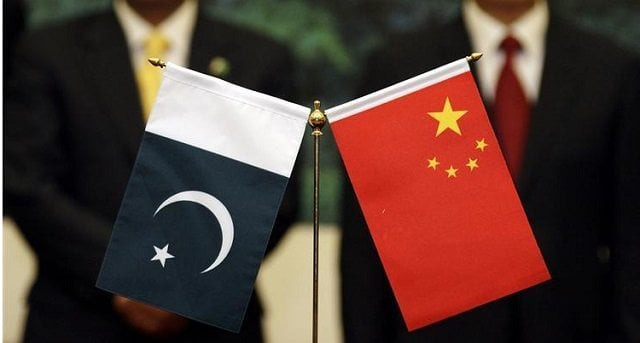Repayment of Chinese infrastructure loans to start in 2021
Planning dept says Pakistani given preferential interest rates

PHOTO: REUTERS
The secretary of the planning department, Zafar Hassan, informed the committee that China has provided the Pakistani government with concessional loan and buyer's credit for the Orange Line project at 2 per cent and 5.2 per cent interest respectively.
The special committee held its session at the parliament house with Senator Sherry Rehman in the chair. The chairperson maintained that there was a need for a fully-fledged CPEC authority to look after the affairs of mega project.
China comes to Pakistan’s rescue with $2.5b loan
Furthermore, the planning secretary informed the panel that the CPEC’s portfolio was in excess of $49 billion while ML-1 and six projects in Gwadar were in the pipeline.
“The projects in Gwadar are being financed by Chinese grant and interest-free loans. The overall cost for the second phase of the Karakorum Highway project in Thakot-Havelian stands at $1.3 billion,” the secretary said.
He added that for completion of the Thakot-Havelian section of KKH, the loan had been provided at 2 per cent as well as that for the Orange Line project while interest on loans through buyer's credit and PBC were set at 5.2% and 2% respectively.
Minister for Planning and Development Khusro Bakhtiar said that construction on the highway connecting Dera Ismail Khan and Hakla was under construction, while work on the wester corridor, part of Balochistan, was yet to start.
The meeting was informed that the land issue for a 300 megawatt (MW) electricity project in Gwadar, in the pipeline since 2015, had been resolved. “The tariff matter pertaining to 300 megawatt of electricity is now with the National Electronic Power Regulatory Authority (Nepra),” the planning secretary informed.
Regarding Balochistan, the meeting was informed that the government had allocated Rs7 billion in its Public Sector Development Programme (PSDP) for Balochistan in the current fiscal year. “Funds for 80 per cent of the ongoing projects have been released while the development budget of the former tribal areas have also been increased,” he added.
Pakistan will be paying China $90b against CPEC-related projects
According to the planning secretary, in the second phase of CPEC, focus will be placed on socio-economic development, poverty alleviation and industrial development.
Hassan said China would provide grant of $1 billion in two stages. “Under the first stage, the country will invest $200 to $300 million in 16 small social projects, which would be completed within a year while the rest of the amount would be issued in three years’ time.”
He added that the second phase of CPEC would also focus on agricultural development and the establishment of an oil refinery in Gwadar.
Committee convener Senator Sherry Rehman asked how $300 million was enough for 16 socio-economic development projects and the possible and potential benefits of such projects.
She also expressed her dissatisfaction with the briefing given by the planning ministry. “There is a considerable difference between the briefing given by the planning ministry and the content of the photocopies given to us. You cannot even prepare and present the briefing properly, how would you run the CPEC?” she remarked.
Meanwhile, Senator Usman Kakar remarked that CPEC had turned into an anathema instead of a blessing, warning that the project might make the country excessively dependent on China. “Even the United States was giving such grants and we all know our condition today,” he said.
Addressing the issue of areas with a paucity of development, he said funds earmarked for the purpose were being spent on highly-developed districts instead of backward regions.
“In Balochistan, we need to address the water crisis above all things. Just give dams to Balochistan and we need nothing else,” he added.
The committee directed the planning ministry to come up with a comprehensive briefing pertaining to details and impact of socio-economic development projects in its next meeting.


















COMMENTS
Comments are moderated and generally will be posted if they are on-topic and not abusive.
For more information, please see our Comments FAQ